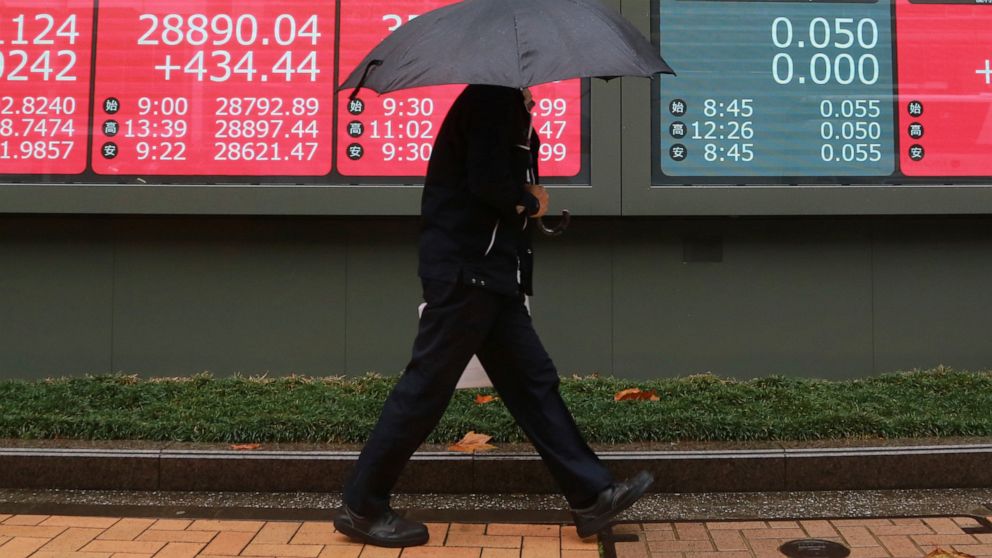Stocks turn choppy on Wall Street after a two-day rally
Stocks turned choppy on Wall Street Wednesday following a two-day rally
BANGKOK — Stocks turned choppy on Wall Street in afternoon trading Wednesday, keeping the market’s gains following a two-day rally in check.
Stocks turned choppy on Wall Street Wednesday following a two-day rally.
The S&P 500 rose 0.1% as of 2:41 p.m. Eastern. The Dow Jones Industrial Average fell 27 points, or 0.1%, to 35,691 and the Nasdaq rose 0.4%.
The muted trading for the benchmark S&P 500 index follows a strong start to the week that included its biggest gain since March. The rally also nearly erased its losses from the last two weeks.
Communications and health care stocks made solid gains. Facebook parent Meta Platforms rose 2.6% and Twitter rose 2.7%.
Technology companies remained wobbly. Apple rose 2.1%, while Microsoft fell 0.7%. Chipmakers also slipped. Intel shed 1.9%.
A wide range of travel-related companies gained ground in a sign that investors are confident that the industry will continue its recovery despite the threat from the omicron variant of COVID-19. Booking Holdings rose 2.6%, Wynn Resorts rose 2.2% and Carnival rose 5.8%.
Energy futures rose. The price of U.S. crude oil gained 0.4%, though energy stocks were mixed.
Smaller company stocks far outpaced the broader market. The Russell 2000 index rose 0.7%.
Bond yields rose. The yield on the 10-year Treasury rose to 1.50% from 1.48% late Tuesday.
Markets in Asia were mostly higher. Tokyo’s Nikkei gained 1.4% as economists are forecasting a rebound for the world’s third largest economy in the current quarter after coronavirus caseloads plummeted.
Markets in Europe fell. Germany’s Dax shed 0.8% as Germany’s parliament elected Olaf Scholz as the country’s ninth post-World War II chancellor, opening a new era for the European Union’s largest economy after Angela Merkel’s 16-year tenure.
Stocks have been mostly making gains since Monday following comments from Dr. Anthony Fauci, the White House’s chief medical adviser, who said early indications suggested that omicron may be less dangerous than the delta variant.
“The generally more confident tone is a function of omicron news,” said Liz Ann Sonders, chief investment strategist at Charles Schwab. “Regardless of what’s happening, it’s still amazing to see all the flip-flopping happening at the sector level.”
Markets had slipped the previous two weeks over several concerns, including rising inflation, the newest coronavirus variant and how both issues could impact economic growth. Choppiness in the market will likely persist through December, she said.
Investors could get more insight into how the economy is faring later this week and next week. On Friday, the Labor Department will give an update on how rising prices are impacting consumers with the release of its Consumer Price Index for November.
The Federal Reserve is scheduled to hold a two-day meeting of policymakers next week that could offer an update on the central bank’s plans to tackle inflation. The Fed has said it plans to speed up the pace at which it trims its bond purchases, which have helped keep interest rates low. That has raised concerns that the Fed will raise its benchmark interest rates next year sooner than expected.
![]()


